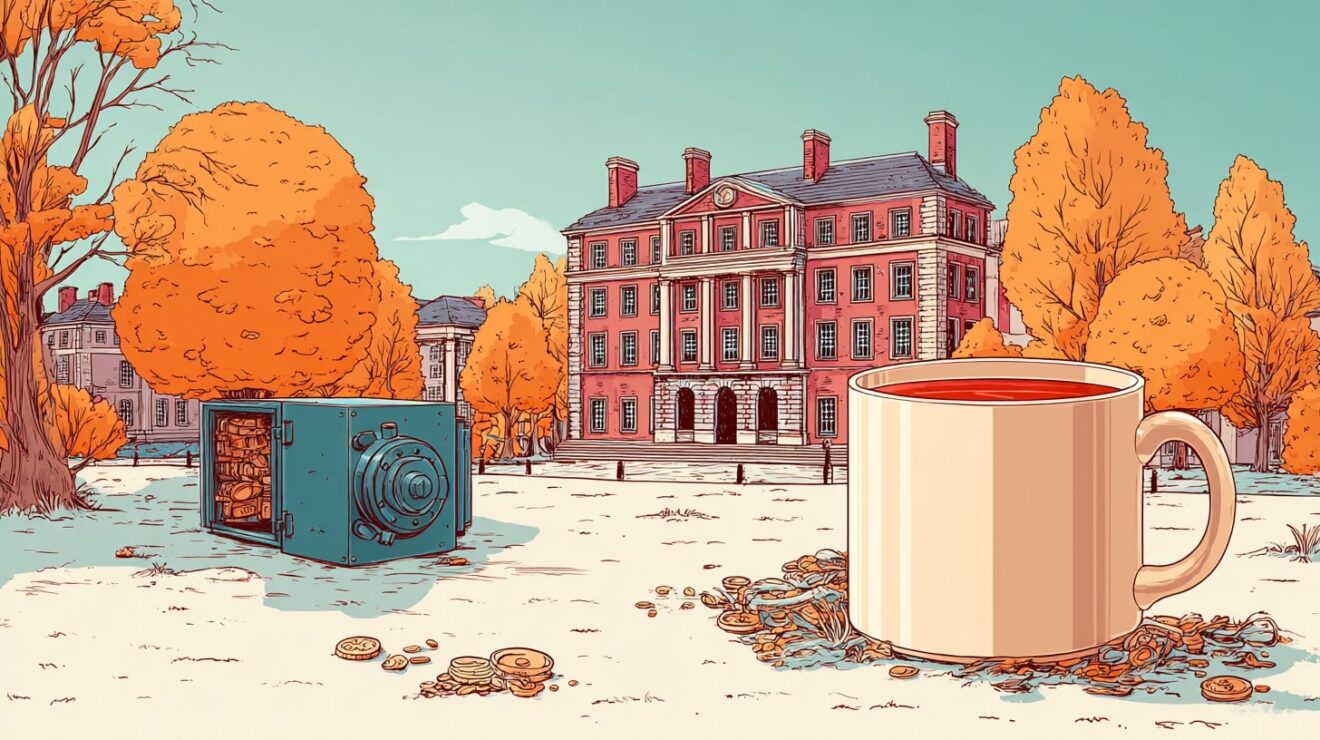For policy wonks and academics, elections can be dispiriting events.
We’re inclined to imagine democratic politics as a great contest of ideas and reasoning. We think of great philosophers in ancient Greek market squares and Enlightenment French salons, using the power of logos to persuade the interested and informed participants of the most sophisticated policies.
But elections, despite being the cornerstone of democratic politics, and even before our ‘post-truth’ era, have virtually nothing to do with policy. Voters do not read manifestos. They do not make decisions by evaluating lists of policies presented to them. At a time when our public debate about the merits of different policy options should be most intense and sophisticated, the reality is far from the ideal.
To believe this proved to be a fatal mistake for Ed Miliband, and even for Michael Howard. It also looks like it will be so for Jeremy Corbyn. Corbyn’s default reaction to the election announcement was that he was looking forward to “put the case for how this country could be run”. In fact, he used the phrase “put the case” more than five or six times in less than a minute in one interview last week.
But persuasion in modern politics has little to do with honestly putting your policy proposals forward to the people and then hoping for the best. Framing, rhetoric, repetition, and personality always count for more. This is something the Conservative Party has usually understood better than Labour, perhaps a reason for the Tories’ continued electoral success at the expense of Labour over the last one hundred years. If the polls are right, that success looks set to continue at this election.
The unlikely Jacobin
If the Conservatives have their way, Brexit and Corbyn will define this election. The Prime Minister is aspiring to build a unified coalition of Leave voters together with those Conservative Remainers in the Home Counties who will never vote Labour (certainly not under Corbyn). Some, in places like South London, Bath, Winchester, and elsewhere, may vote Liberal Democrat. That is her only weakness.
Making the election about Brexit also disguises the Prime Minister’s reasons for calling it. The Article 50 legislation passed very smoothly and with the support of many Labour MPs and Tory Remainers. The Prime Minister’s small majority hampers her on nearly every issue other than Brexit: national insurance reform, grammar schools, and even international students, to name just a few important issues. But it is to the Prime Minister’s advantage to make it all about Brexit before the election while claiming a mandate for more recognisably ‘Mayist’ manifesto afterwards.
For the election campaign itself, the culture war will matter most. The Prime Minister has set out her winning messages already: ‘strong and stable’ leadership; the people against Westminster; those who want to ‘come together’ versus those (including annoying universities and experts) that dare question her authority and get in her way over Brexit. That the ‘saboteurs’ of the Daily Mail’s imagination have been rather impotent is largely irrelevant. The idea of the saboteur was a perfectly logical extension of May’s line of argument in her Downing Street announcement. There’s something occasionally Jacobin about Brexit conservatism. Edmund Burke would not approve.
Mayism and higher education
The Conservatives hope that domestic policy matters such as education will not be hot topics in the coming campaign. Indeed, education, housing and health are the only policy issues remaining on which Labour is in touch with or ahead of the Conservatives in polling.
But the content of the Conservative manifesto on which their popular mandate will be won matters more than ever. It will be the programme for government for the next five years, and the ideological programme for perhaps at least a decade.
Over the past few months, we’ve slowly been getting a clearer idea of what ‘Mayism’ might mean and how it differs from Cameroon conservatism. In respective interviews with the New Statesman and the Spectator, we see a Prime Minister with a very different idea of conservatism to Cameron, as well as a very different idea of policy implementation to much of Whitehall. May aspires to be a transformative Prime Minister in the style of Clement Attlee and Margaret Thatcher – our first ‘post-liberal’ leader.
May’s conservatism is much more at ease with the Tory Party rank-and-file. She identifies closely with her constituency in Maidenhead similar places and invested a significant amount of time touring local Conservative groups in the country over the past few years. This is the conservatism of church, village fetes, local pubs, grammar schools, small towns and suburbs: older, more liberal than is sometimes given credit for, but still not at ease with the pace of change in recent years, and more relaxed about state intervention, provided it’s rooted in the community and collective responsibilities. Electorally, it aspires to revive and expand the long tradition of working and lower-middle class conservatism, regaining those votes lost to UKIP and even to Labour in the early Blair years. Consider May’s response to criticism to her ‘citizen of nowhere’ remarks at Conservative Party Conference:
People should have a root in a community, should have a feeling that they are part of a community and that they have responsibilities in a community… I was talking about the concept that you can be around the whole world and not have those responsibilities anywhere. I wasn’t getting at a particular grouping or individual…
Recently there’s been a sense that all that matters is the individual, rather than their responsibilities to other people. I think we need to redress that balance.
Aside from the Prime Minister’s hostility to universities over international students, there is a wider scepticism towards the higher education sector that appears to sit within her ‘communitarian conservatism’. One such belief is that ‘too many people go to university’. University expansion has been one of the most significant social transformations of the past twenty years, and though the source of some grumbling, has largely gone ahead unchallenged in the Blair-Cameron consensus. But rightly or wrongly, university attendance has become increasingly associated with a lack of ‘rootedness’ which sits at the heart of May’s political outlook.
‘Communitarian conservatism’ also fits with the outlook of the influential Conservative Home website, the go-to place for the Tory rank and file. The website’s seven-point plan for the Conservative manifesto explicitly advocates “transferring resources from the bloated University [sic] sector… towards vocational education”. This isn’t an isolated idea and is particularly directed towards those institutions that only last month celebrated their twenty-fifth anniversary as universities. The nostalgia for polytechnics, however misguided, refuses to die. Such views will only be accentuated when the Longitudinal Educational Outcomes (LEO) data inevitably shows vast disparities in graduate earnings between different subjects and institutions. And it will be easy for them to gain traction as radical reforms to pre and post-18 technical education is implemented, and where undergraduate recruitment is being squeezed for a small number of post-92 universities.
A recent piece for Conservative Home by journalist and former ministerial speechwriter Graeme Archer picks up on the common tropes of this perspective: overpriced degrees (“Thirty grand! Sign here…”), grade inflation (“beyond a joke”), and politically correct campus culture (“jaw-dropping illiberality”). Such views are not new, but there is a far greater chance that they might more readily influence policy, particularly if the next universities minister is more ideologically close to the Prime Minister or the backbench 1922 Committee. Jo Johnson is still in many ways a hangover from the Cameroon metropolitan years.
This isn’t just confined to idle polemic. It was only eighteen months ago that the conservative think tank Policy Exchange kickstarted a debate about reallocating resources from universities to colleges. Even Cameron’s former Head of Policy has argued this weekend for “ending the imbalance between higher education and technical education”. And then there’s the rather thoughtful critical look at the sector’s expansion that I considered in my review of David Goodhart’s recent book and has been suggested by one of the HE Bill’s staunchest critics, Alison Wolf.
The post-Brexit, post-liberal challenge to universities reaches far beyond EU recruitment and research. We should not expect the same scale of reforms that resulted from the last Conservative manifesto. Rather, one suspects that higher education will quietly drop down the priority list as a result of a Theresa May-led electoral triumph. This will be just as dispiriting as the coming six weeks of repetitive rhetoric and dodgy policy promises on the campaign. And it’ll likely last for a much longer period of time.













